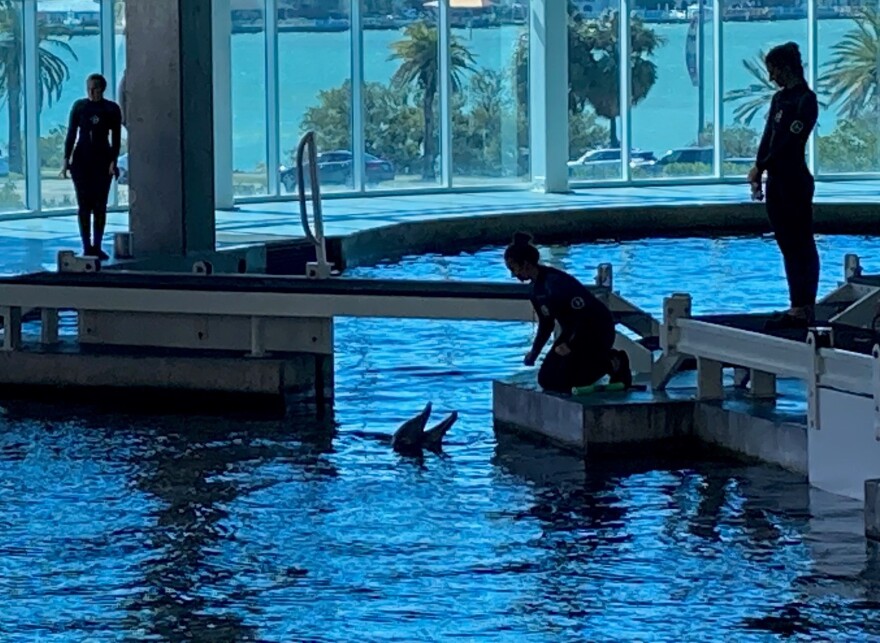The Clearwater Marine Aquarium, which became famous for its care of the injured dolphin "Winter," is embarking on an expansion that would take it far beyond dolphins and sea turtles.
The aquarium kicked off its Rising Tides project, which aims to raise $32 million over the next six years.
In addition to an already planned expansion of its manatee rehab facility, the aquarium will expand its facilities to help dolphins, sea turtles — and for the first time, sharks, albino alligators, penguins and California sea lions.
"The inclusion of sea lions will enable CMA to amplify awareness about the challenges facing the species, while also offering significant prospects for research and education," said Kelly Martin, vice president of zoological care.

Anthony Rivera, the aquarium's chief operation officer, says the expansion will include a state-of-the-art animal hospital.
"We will enhance our capacity to provide exemplary care to our marine patients, as well as being able to add more veterinary experts and team members," he said. "This revamped Animal Hospital was served as a hub for partnerships with universities and external experts driving collaborative research endeavors and innovation and marine care."
Rivera said over the next five years, the aquarium will begin treating and housing many new species.
"Albino alligators, whose population is on the decline and which struggle with issues of poor eyesight, skin issues and do not have the ability to camouflage," he said. "Sharks, which have a mystique that attract visitors and an incredible story to tell with the vital role they play in the delicate ecosystem. Penguins. There are a number of penguins who are under distress from situations such as climate change, avian flu, shifting currents and problems with loss of ice shelves."

The aquarium also plans to break ground this summer on a new marine rescue center in the Central American nation of Belize. Their CMA Research Institute has rescued and released manatees for 20 years in Belize, which has the highest known density of Antillean manatees in the world.





